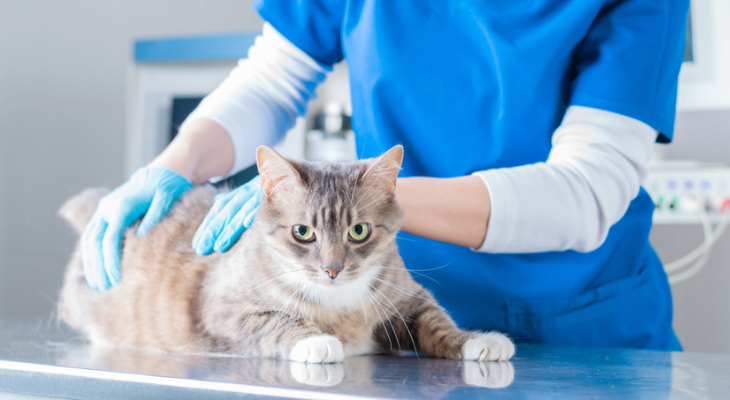
Common Neurological Disorders in Cats
Does your cat lose its balance easily, stare into space, drool, or twitch? Your furry friend's strange behavior could be caused by a neurological disorder that affects the brain, nerves, or spinal cord. These disorders are among the most common neurological problems diagnosed in cats.
Vestibular Disease
A cat with vestibular disease may have trouble keeping its balance. When it tries to stand, it may lean to one side and fall. Your cat may also walk in circles, tilt its head to the side, or move its eyes back and forth very quickly. Ear infections, bacterial diseases, tumors, or exposure to toxic drugs can be responsible for the unusual behavior, although it may not always be easy to determine the cause of the disease.
Treating the underlying condition or disease, if one can be identified, can improve the symptoms. Medication that relieves nausea and vomiting may be helpful. Luckily, the symptoms of vestibular disease usually only last a day or two.
Herniated Discs
Rubbery discs cushion the vertebrae that make up your cat's spine. A disc becomes herniated if the soft inner core of the disc begins to bulge through the tough outer layer. If the herniated disc presses on a nerve, your cat may experience:
- Difficulty walking or jumping
- Balance and coordination problems
- Muscle spasms
- Back pain
- Irritability when touched
Medication to reduce inflammation and relax the muscles can be helpful. If these treatments don't help, surgery may be needed in some cases.
Epilepsy
An occasional seizure doesn't necessarily mean that your cat has epilepsy. The condition is usually only diagnosed if your cat has frequent seizures. Although some cats may collapse or shake during a seizure, cats are more likely to experience partial seizures, according to International Cat Care.
During a partial seizure, you might notice drooling, excessive meowing, twitching eyelids, growling, or unusual head, neck, or leg movements. Medication to reduce seizures may be helpful if your cat has epilepsy.
Dementia
Unfortunately, cats can develop dementia, or feline cognitive dysfunction (FCD) as they get older, just like humans. The condition is particularly common, affecting more than 55% of cats 11 - 15 and more than 80% of cats 16 - 20, according to the ASPCA.
If your cat has dementia, it may:
- Forget to use the litterbox
- Become lost in your home
- Stop grooming or groom less
- Fail to recognize family members or other pets
- Stare at nothing
- Meow more often or more urgently
- Need more or less interaction with people
- Seem restless or agitated
Since health problems can also be responsible for these changes, it's important to take your cat to the veterinarian. If your cat has FCD, you can make a few helpful changes, such as adding more litterboxes to your home, helping your pet with grooming, avoiding moving furniture, or changing your pet's routine.
Hydrocephalus
Hydrocephalus happens when fluid begins to build up in your cat's brain. Symptoms can include:
- Frequent meowing
- Large, dome-shaped head
- Coordination issues
- Failure to use the litterbox
- Seizures
- Trouble breathing
Hydrocephalus can be something your cat is born with or can be caused by a tumor, infection, or disease. Your pet's veterinarian may recommend medication to decrease fluid production or surgical placement of a shunt to drain excess fluid.
Feline Hyperesthesia Syndrome
Does your cat jump when you touch the base of its tail? Your furry friend might have feline hyperesthesia syndrome (FHS). You may also notice that the fur on your cat's back ripples often or that your pet suddenly sprints through your house. Other symptoms can include obsessively biting or scratching the tail or back, drooling, dilated pupils, excessive vocalization, and urinating. Although the cause of FHS isn't exactly clear, it could be a seizure-related disorder.
Your pet's veterinarian will want to rule out other possible causes of the symptoms, such as fleas, infections, or arthritis, before prescribing medication. Medication that controls epileptic seizures can be helpful, as can reducing stress.
Do you think that your cat may have a neurological disorder? We can help improve your furry friend's symptoms. Contact our office to schedule an appointment.
Sources:
International Cat Care: Seizures/Epilepsy in Cats
ASPCA: Older Cats with Behavior Problems
Cornell University College of Veterinary Medicine: Hyperesthesia Syndrome
